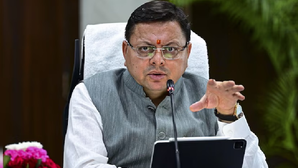New Delhi, Jan 20 (IANS) The Uniform Civil Code (UCC) rules approved by the Uttarakhand government on Monday avoided the controversial proposals for creating a separate process to resolve disputes related to personal laws.
The rules proposed by the Shatrughan Singh Committee for the UCC initially presented to the Chief Minister on October 18, 2024, were subject to some revisions.
The extensive 400-page document has been condensed to under 100 pages, with only provisions concerning registration of marriage, divorce, inheritance, and live-in being retained, sources said.
As a result, the revised UCC rules approved by the Uttarakhand government on Monday no longer include the proposal for a separate process to handle disputes related to personal laws, sources added.
The enforcement of the UCC is likely to be announced on January 26, with the government waiting for the conclusion of local body elections, which are currently under the model code of conduct.
Meanwhile, this move has raised a few questions about the decision vis-a-vis public interest. The reported revision of the original rules — particularly the removal of judicial processes for resolving disputes in personal matters — has raised eyebrows. These changes were reportedly made following recommendations from the Law, Justice and Legislative Affairs department, which oversees the state’s judicial processes.
A key concern is the purported rejection of public suggestions made during the UCC consultations, where people voiced the need for improvements in judicial processes, said sources.
The decision to discard these recommendations calls into question whether the UCC’s implementation is genuinely in the public interest, ask sources.
Sources also ask as to why public consultations were held if their inputs were to be ignored? And why was the Committee formed if its extensive work was ultimately dismissed? Significantly, the Act was drafted based on a report from a government-appointed panel chaired by retired Supreme Court judge Ranjana Prakash Desai.
The five-member panel conducted several public meetings and consultations with diverse stakeholders throughout the state to compile the report.
Analysts ask whether the entire exercise was a mere formality, intended to pacify public sentiment without delivering meaningful reform.
The recent suicide of Atul Subhash, which cast a shadow over the judicial system, has once again highlighted the need for reform.
With the UCC aiming to address these very concerns, purported rejection of certain reforms raises a crucial question as to whether the people will be getting real justice, or will it continue the status quo of harassment.
–IANS
brt/dan




























